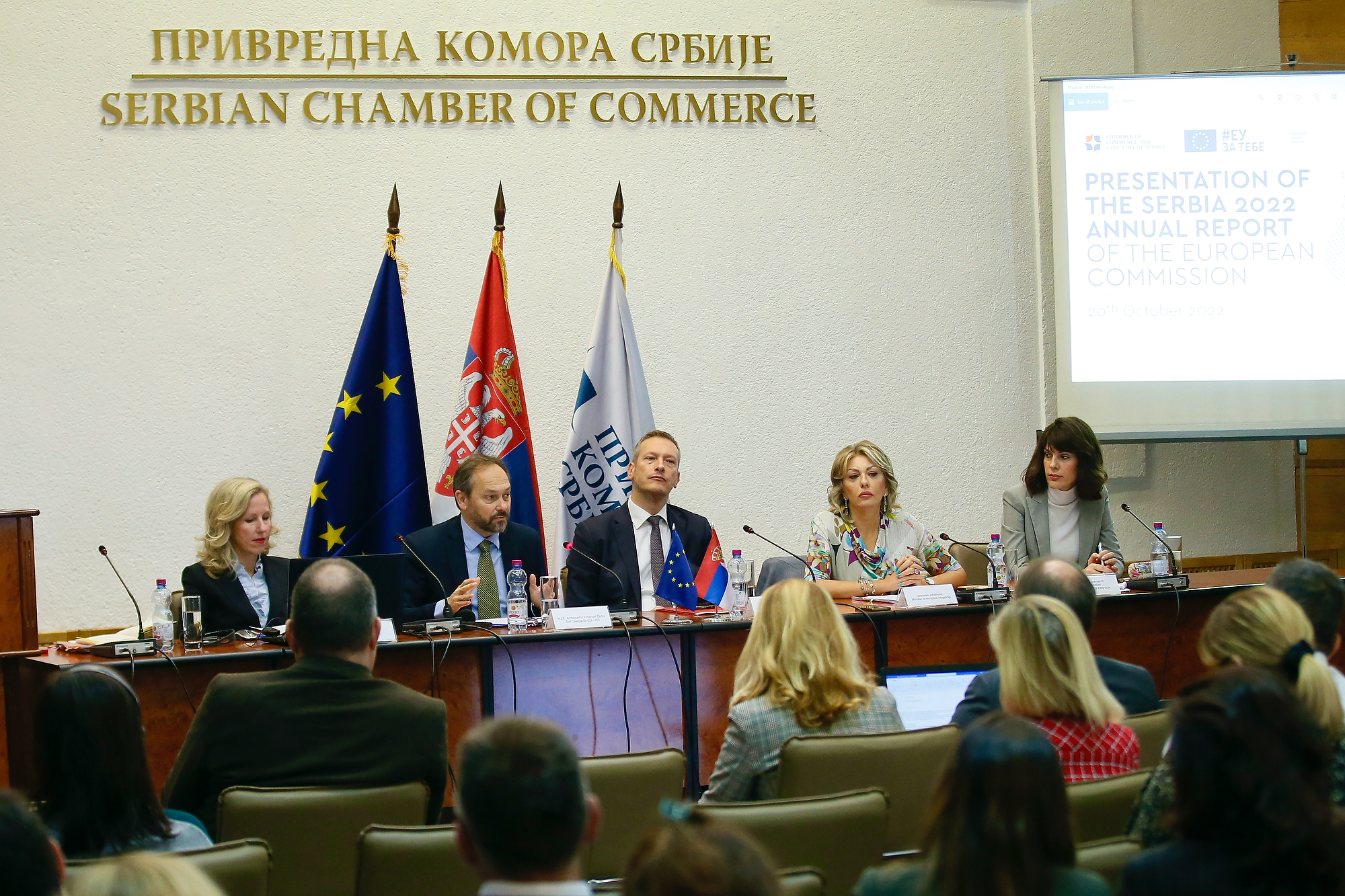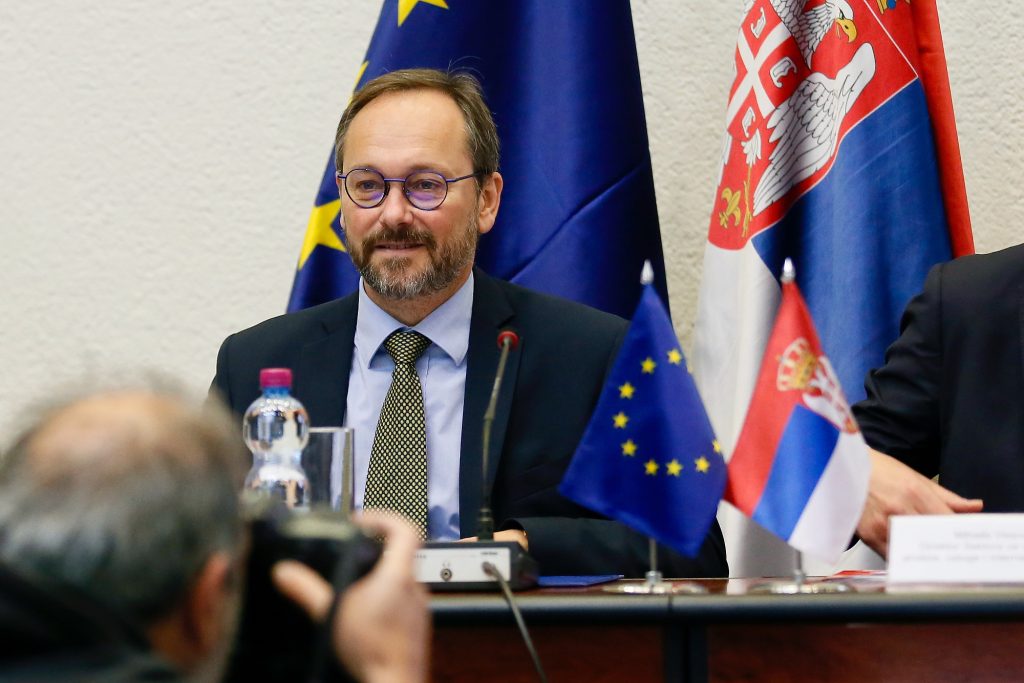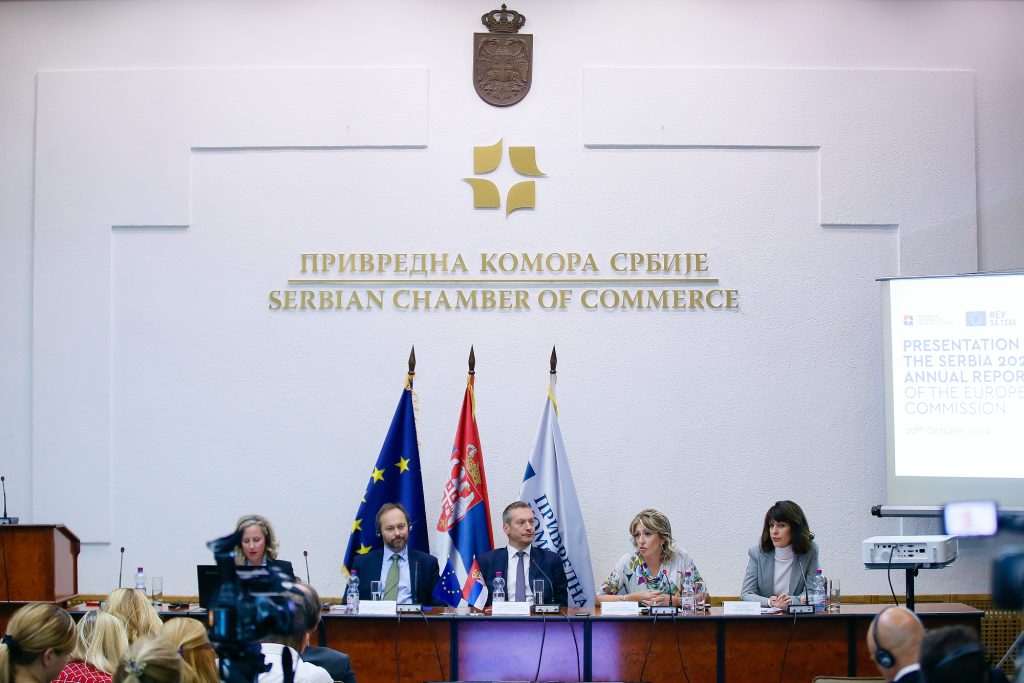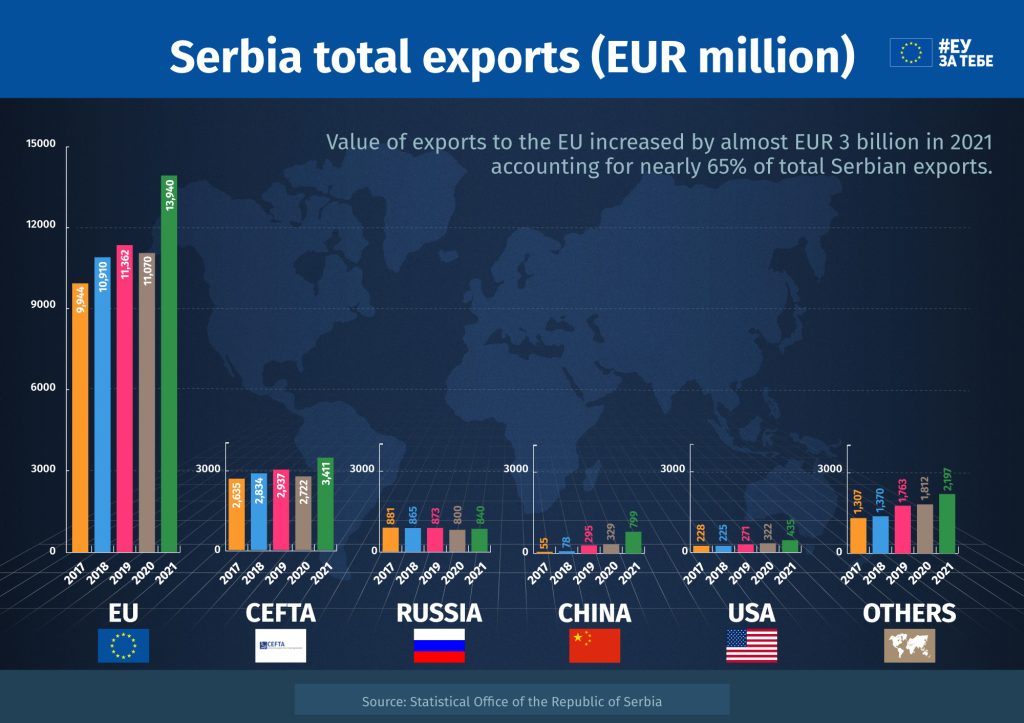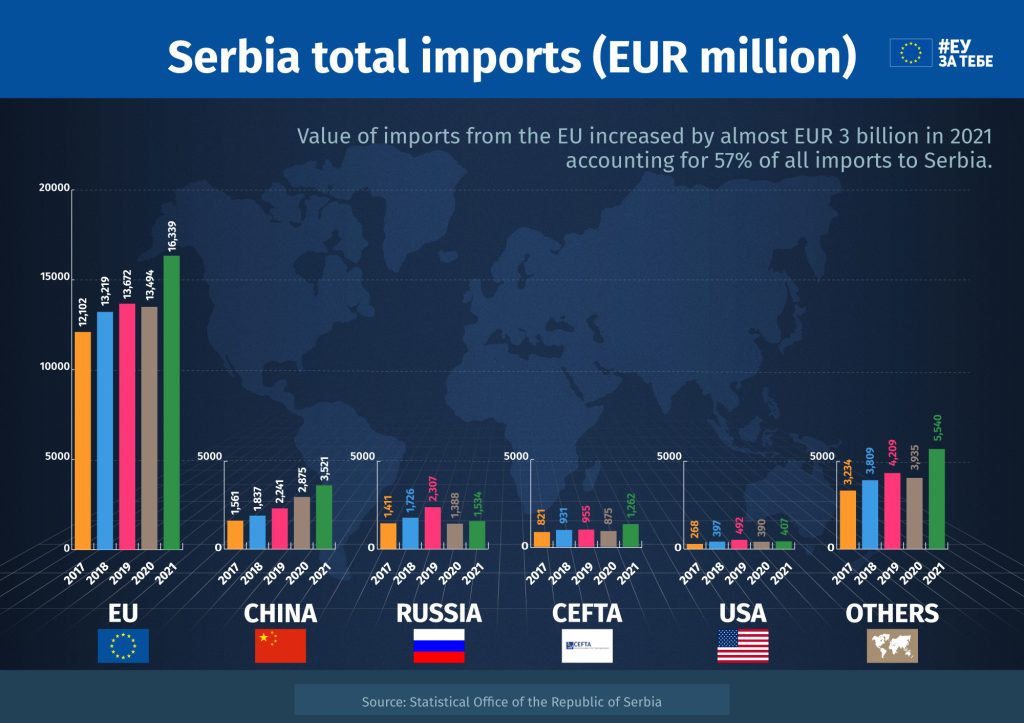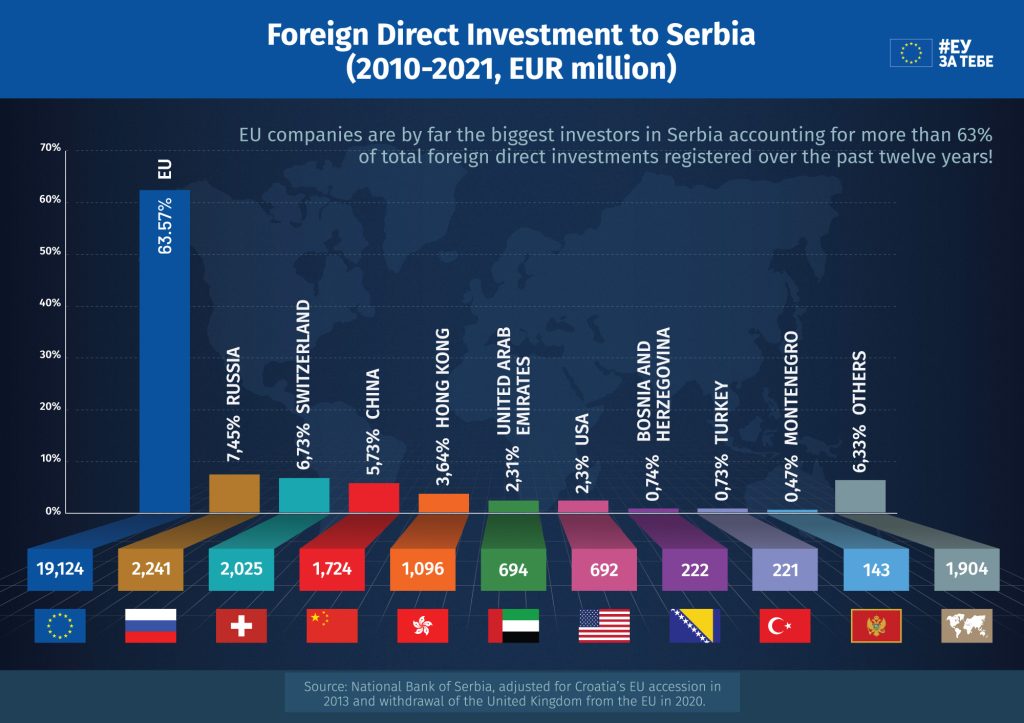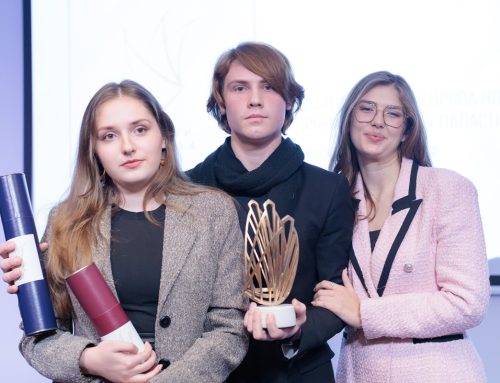EU Ambassador to Serbia Emanuele Giofre presented today the main findings of the European Commission’s Annual Report on Serbia to businessmen at the Serbian Chamber of Commerce in Belgrade.
Ambassador Giaufret highlighted the partnership in the areas of trade and investment between Serbia and the EU, called for structural reforms to reduce the footprint of the state in the economy and the need for an improved rule of law situation overall.
Fighting corruption and an improved judiciary as well as reforms in the public administration sector were vital to better the investment climate. He stressed that the business climate had been improved already in the reporting period and that the annual report took note of that.
“Serbia is between a good and moderate level of preparation on Economic criteria. The state however retains a strong footprint in the economy and the private sector is underdeveloped and hampered by weaknesses in the rule of law, in particular corruption and judicial inefficiency, and in the enforcement of fair competition. We know that investors and economic operators want to see Serbia heading towards the European Union, that the country is well anchored to the EU single market. This is the best proof that their investments and efforts to develop their business are based on solid ground. The Russian aggression to Ukraine is putting strain on the world economy including in Europe, but it has also put enlargement back at the centre of EU’s political agenda. There is an opportunity for Serbia. We count on Serbia to join the rest of Europe in confronting the Russian aggression against Ukraine.”
The report highlights some progress in making the judiciary more independent and accountable and in the fight again corruption, while on media no progress was achieved. He also highlighted that further work and political commitment were needed to continue and deepen reforms and address shortcomings.
The Ambassador emphasized that Serbia could continue to rely on the EU: “Over 60 percent of Serbia’s overall trade are with the EU and the EU provides annually more than 200 million Euros in non refundable grants to Serbia for concrete projects. In particular in the light of the energy crisis Serbia could count on the EU as the EU is financing with almost 50 million EUR in non-refundable grants the construction of the Serbia-Bulgaria gas interconnector. This will help Serbia in diversifying its gas imports and reducing its energy dependency towards Russia.”
“The European Union is indisputably a strategically important partner for Serbia, first of all, in terms of business. Nothing connects the European Union and Serbia in such a healthy, strong and qualitative ways as our economic ties, and that is why Serbian economy is genuinely interested in accelerating the process of accession to the European Union”, said Mihailo Vesović, Director of the Sector for Strategic Analysis, Services and Internationalization in the CCIS.
Vesović emphasized that it is extremely important, especially in the current global energy crisis, that Serbia opened Cluster 4 last year, which concerns the “green” economy and energy transition, and announced that the Chamber of Commerce and Industry of Serbia will present the Declaration “Green transformation of Serbian economy in 10 points”.
Speaking about Serbia’s progress in terms of regional cooperation, he pointed out the importance of the “Open Balkan” Initiative and its benefits to the regional economy, but also emphasized that the Serbian economy requires the EU to get involved in solving the problem of the long waiting of trucks at border crossings with the EU.
Jadranka Joksimović, Minister for European Integration, pointed out that the EC Report shows that Serbia has made progress in areas that are key for the economy, the judiciary, and the fight against corruption, and that the Report clearly states that the Serbian economy has made strong progress.
Joksimović also said that the European Commission made a decision to approve a package of measures for the Western Balkans in the energy sector, which will be used to finance energy stability, security and diversification of energy supplies. In addition, through the European Investment Plan, the European Union supports the transition to green energy, sustainable economy and environmental projects.
Read more:
Key findings of the 2022 Report on Serbia
Ambassador Giaufret presented the Enlargement Package to President Vučić

